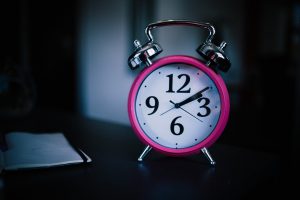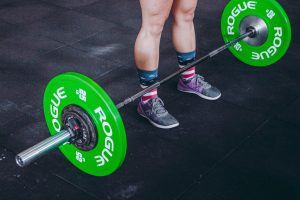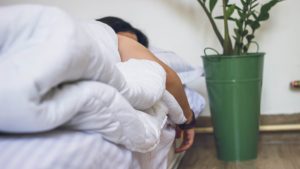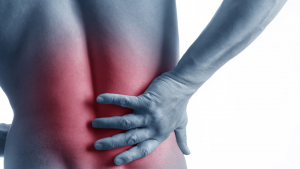Are you sleeping enough?

As the world continues to move towards a 24-hour society, more people are getting less sleep. In fact, inadequate sleep was declared as a public health problem by the US CDC (Centres for Disease Control and Prevention)! Approximately 40% of adults experience inadequate sleep, with athletes, new parents and older adults the ones who are most susceptible to this out of all people. (6) In this blog, we’re going to share key reasons why proper amounts of sleep is vital for exercise performance and recovery.
Inadequate Sleep and Exercise Performance

It has been long known that inadequate sleep has a negative effect on exercise performance. A 1994 study in which participants were deprived of sleep for three consecutive days proved this point. The lack of sleep in participants caused their strength to decrease, as after each day, their one-rep max (most weight you can lift in one repetition) for the leg press and deadlift exercise significantly decreased. Significant decreases in stamina and grip strength were also observed in the sleep deprived participants. (5) In addition to decreases in physical performance due to inadequate sleep, decreases in mental performance have also been seen. A 2017 study with 64 university students found that those who were sleep deprived had significantly slower reaction times. These changes are likely due to changes in the motor areas of the brain. Reduced reaction times are a major disadvantage in competitive sports, and can pose a danger to actions such as driving or operating machinery (7).
Inadequate Sleep and Recovery
Sleep deprivation also has negative effects on recovery post-workout. Rest and recovery is a key in any exercise program, as it gives the body time to adapt and repair itself in between bouts of exercise (1). A 2017 study that recruited 16 male cyclists aimed to compare cyclists’ recovery from a single HIIT workout after they slept for either a regular amount of time, or slept for half of their usual time overnight. As you may have expected, the cyclists who had inadequate sleep ended up with negative effects on their recovery from exercise. They felt sleepier, had decreased motivation to train, and presented with lower blood pressure. On top of that, the sleep-deprived cyclists had a lower ability to generate leg power a day after the HIIT workout, compared to the cyclists who had a good night’s sleep. All together, this study shows that partial sleep deprivation has a negative impact on recovery from a HIIT workout, emphasizing the importance of obtaining a good night’s sleep after physical activity (2). In addition to sleep, proper diet is also vital for recovery from exercise – after all, you are what you eat! A 2010 article from the University of Chicago investigated the link between sleep duration and its effect on metabolism and appetite. They found that people who are sleep deprived were more likely to crave unhealthy foods. In addition, sleep-deprived individuals more commonly had issues with glucose tolerance, which then affects protein synthesis (which plays a huge part in repairing muscles after working out) and restoration of energy stores in the body (4). In short, not only does sleep deprivation affect your ability to perform the next day, but it also affects your body’s ability to recover from the previous day’s workout.
To Sum It All Up…

Overall, sleep has negative effects on both exercise performance and recovery. Although we may not be able to get a perfect night’s sleep every single night, there are things that we can do to try and help ourselves sleep longer and better each night. Take a look below at the sleep hygiene recommendations to try and gain more adequate sleep!
Sleep Hygiene Recommendations – From the International Journal of Sports Medicine (3)
| 1. Don’t go to bed until you are sleepy. If you aren’t sleepy, get out of bed and do something else until you become sleepy. |
| 2. Regular bedtime routines/rituals help you relax and prepare your body for bed (reading, warm bath, etc.). |
| 3. Try to get up at the same time every morning (including weekends and holidays). |
| 4. Try to get a full night’s sleep every night, and avoid naps during day if possible (if you must nap, limit to 1 h and avoid nap after 3 p.m.). |
| 5. Use the bed for sleep and intimacy only; not for any other activities such as TV, computer or phone use, etc. |
| 6. Avoid caffeine if possible (if must use caffeine, avoid after lunch). |
| 7. Avoid alcohol if possible (if must use alcohol, avoid right before bed). |
| 8. Do not smoke cigarettes or use nicotine, ever. |
| 9. Consider avoiding high-intensity exercise right before bed (extremely intense exercise may raise cortisol, which impairs sleep). |
| 10. Make sure bedroom is quiet, as dark as possible, and a little on the cool side rather than warm (similar to a cave). |
References
- Swartzendruber, K. (2018, October 2). The importance of rest and recovery for athletes. MSU Extension. https://www.canr.msu.edu/news/the_importance_of_rest_and_recovery_for_athletes
- Rae, D. E., Chin, T., Dikgomo, K., Hill, L., McKune, A. J., Kohn, T. A., & Roden, L. C. (2017). One night of partial sleep deprivation impairs recovery from a single exercise training session. European Journal of Applied Physiology, 117(4), 699–712. https://doi.org/10.1007/s00421-017-3565-5 https://link.springer.com/article/10.1007/s00421-017-3565-5
- Vitale, K. C., Owens, R., Hopkins, S. R., & Malhotra, A. (2019, July 9). Sleep Hygiene for Optimizing Recovery in Athletes: Review and Recommendations. International journal of sports medicine. https://pubmed.ncbi.nlm.nih.gov/31288293/. https://www.ncbi.nlm.nih.gov/pmc/articles/PMC6988893/
- Morselli, L., Leproult, R., Balbo, M., & Spiegel, K. (2010). Role of sleep duration in the regulation of glucose metabolism and appetite. Best Practice & Research Clinical Endocrinology & Metabolism, 24(5), 687–702. https://doi.org/10.1016/j.beem.2010.07.005 https://www.ncbi.nlm.nih.gov/pmc/articles/PMC3018785/
- Reilly, T., & Piercy, M. (1994). The effect of partial sleep deprivation on weight-lifting performance. Ergonomics, 37(1), 107–115. https://doi.org/10.1080/00140139408963628 https://www.tandfonline.com/doi/abs/10.1080/00140139408963628
- Knowles, O. E., Drinkwater, E. J., Urwin, C. S., Lamon, S., & Aisbett, B. (2018). Inadequate sleep and muscle strength: Implications for resistance training. Journal of Science and Medicine in Sport, 21(9), 959–968. https://doi.org/10.1016/j.jsams.2018.01.012 https://pubmed.ncbi.nlm.nih.gov/29422383/
- Patrick, Y., Lee, A., Raha, O., Pillai, K., Gupta, S., Sethi, S., Mukeshimana, F., Gerard, L., Moghal, M. U., Saleh, S. N., Smith, S. F., Morrell, M. J., & Moss, J. (2017). Effects of sleep deprivation on cognitive and physical performance in university students. Sleep Medicine, 40. https://doi.org/10.1016/j.sleep.2017.11.533 https://www.ncbi.nlm.nih.gov/pmc/articles/PMC5489575/
All images were taken from unsplash.com


